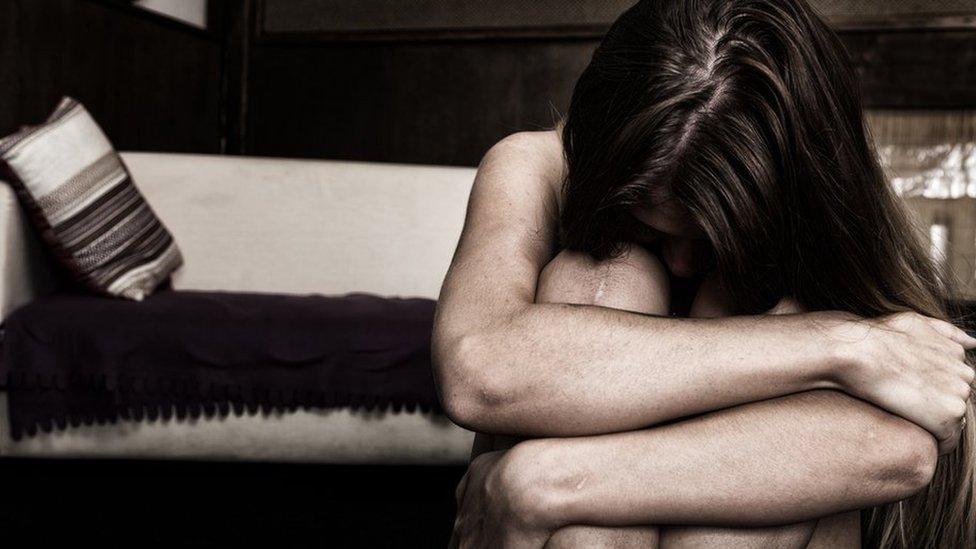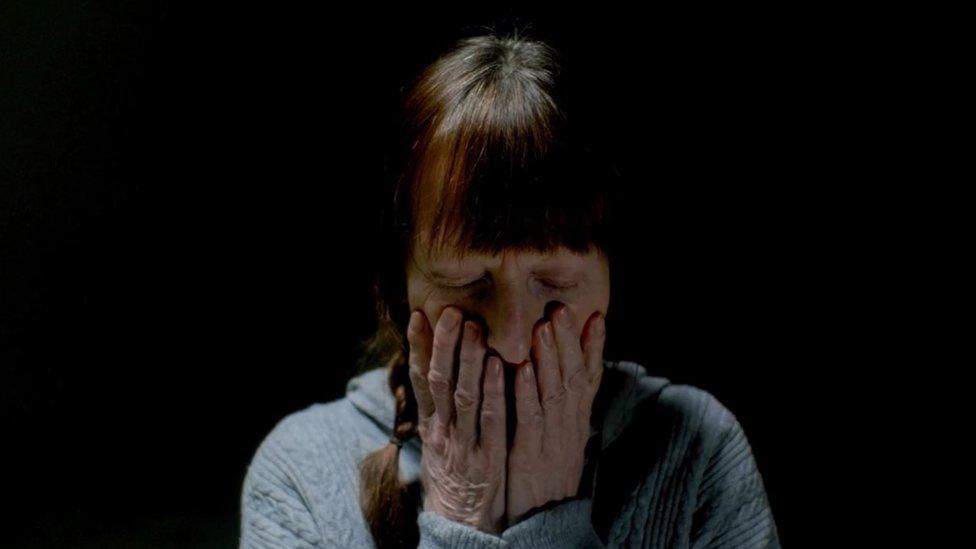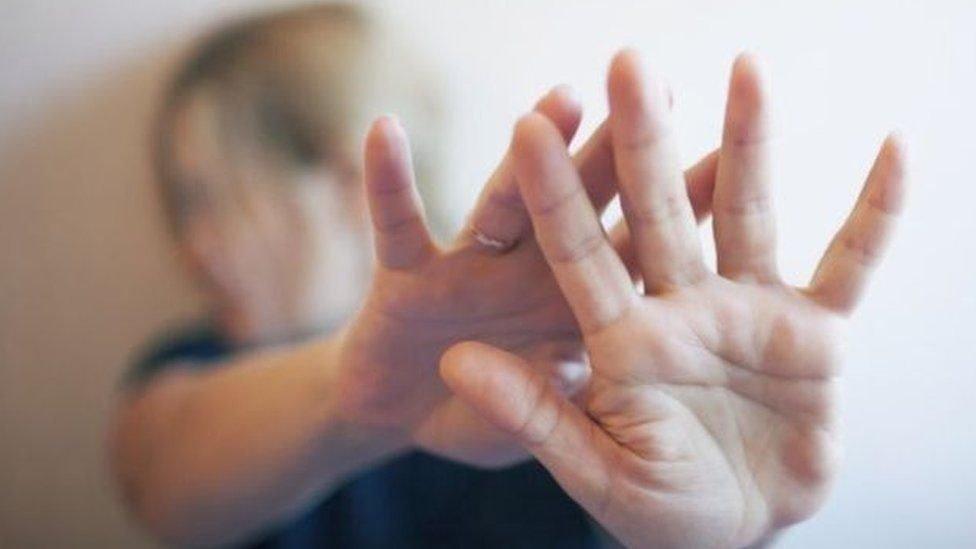Coercive control: Report says few teens know about form of abuse
- Published

Coercive control is a form of domestic abuse involving a pattern of threats, humiliation and intimidation
Fewer than one in six 16-year-olds have heard of coercive control and know what it means, a new study suggests.
The research from Ulster University (UU), Queen's University Belfast (QUB) and the Northern Health Trust has just been published.
Coercive control is a form of domestic abuse involving a pattern of threats, humiliation and intimidation.
Domestic abuse laws, which came into force in Northern Ireland in 2022, made coercive control a criminal offence.
But in the study only 325 (16%) of more than 2,000 16-year-olds had both heard of it and knew what it meant.
More boys who took part said they knew about it than girls.
Higher numbers of young people involved in the study did recognise an abusive relationship when presented with an example of one.
But the researchers also said there was limited evidence on how relationship and sex education (RSE) in schools was addressing things like coercive control.
There have been a number of recent calls for changes to how RSE is taught in Northern Ireland.
Previous research has suggested that some relationships between teenagers can involve coercive control or emotional abuse.
Abusive relationships
The UU, QUB and Northern Trust study, called Young People's Understanding of Coercive Control in Northern Ireland, has just been published in the Journal of Child and Adolescent Trauma.
It aimed to gauge young people's knowledge and understanding of coercive control in Northern Ireland.
Its findings were based on responses from a representative sample of 2,069 16-year-olds to questions included in the Young Life and Times (YLT) survey in May 2021.
The young people were also asked about two scenarios that illustrated coercive control in a teenage relationship.
In one, for example, a boy continually tells a girl that "she is stupid and not pretty", so she is lucky he likes her.
He also "doesn't like her hanging out with her friends anymore" and has passwords for all her social media accounts.
"Encouragingly, many respondents did agree that the scenarios (whether with a male or female victim) were abusive," the researchers said.
"These findings are therefore twofold.
"Young people taking part in the survey comprehend the abusive nature of the obvious and deliberate coercive and controlling behaviours described.
"But they do not recognise the terminology related to this and therefore the important nuances which separate a 'normal' relationship from coercive and controlling one."
The researchers said if young people did not know about coercive control they may also not know to seek help if they experienced it.
'Still work to be done'
They also said if teenagers experienced abuse in their relationships it could affect their mental health and their relationships when they became adults.
"Providing young people with the language and tools to communicate with parents, guardians, peers about unhealthy relationship practices will create wider pathways to support," the study said.
Dr Susan Lagdon from UU was one of those involved in the study and told BBC News NI it showed there was still work to be done despite the laws to tackle coercive control.
"We are unable to gauge the true extent of this issue among young people but what we do know is that coercive control is a feature in some young adults' relationships," she said.
"It is imperative that our dedicated preventative and intervention efforts reflect the diverse needs and experiences of young people.
"Supporting young people to act on their own behalf is an important step change to empowerment within their own intimate relationships."
- Published21 February 2022

- Published13 March 2021

- Published18 January 2021
